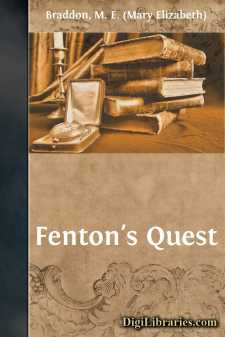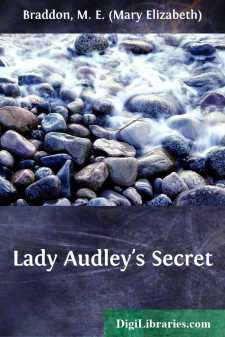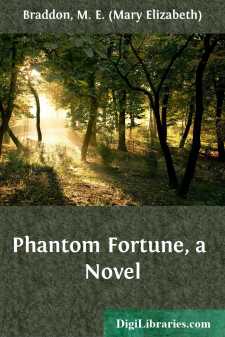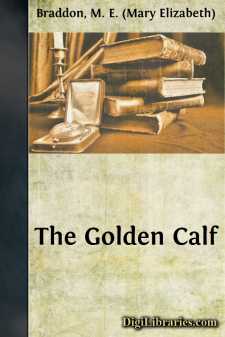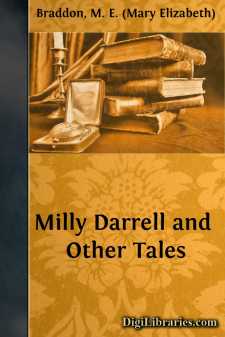Categories
- Antiques & Collectibles 13
- Architecture 36
- Art 48
- Bibles 22
- Biography & Autobiography 813
- Body, Mind & Spirit 142
- Business & Economics 28
- Children's Books 17
- Children's Fiction 14
- Computers 4
- Cooking 94
- Crafts & Hobbies 4
- Drama 346
- Education 46
- Family & Relationships 57
- Fiction 11829
- Games 19
- Gardening 17
- Health & Fitness 34
- History 1377
- House & Home 1
- Humor 147
- Juvenile Fiction 1873
- Juvenile Nonfiction 202
- Language Arts & Disciplines 88
- Law 16
- Literary Collections 686
- Literary Criticism 179
- Mathematics 13
- Medical 41
- Music 40
- Nature 179
- Non-Classifiable 1768
- Performing Arts 7
- Periodicals 1453
- Philosophy 64
- Photography 2
- Poetry 896
- Political Science 203
- Psychology 42
- Reference 154
- Religion 513
- Science 126
- Self-Help 84
- Social Science 81
- Sports & Recreation 34
- Study Aids 3
- Technology & Engineering 59
- Transportation 23
- Travel 463
- True Crime 29
Fenton's Quest
Description:
Excerpt
CHAPTER I
THE COMMON FEVER
A warm summer evening, with a sultry haze brooding over the level landscape, and a Sabbath stillness upon all things in the village of Lidford, Midlandshire. In the remoter corners of the old gothic church the shadows are beginning to gather, as the sermon draws near its close; but in the centre aisle and about the pulpit there is broad daylight still shining-in from the wide western window, across the lower half of which there are tall figures of the Evangelists in old stained glass.
There are no choristers at Lidford, and the evening service is conducted in rather a drowsy way; but there is a solemn air of repose about the gray old church that should be conducive to tranquil thoughts and pious meditations. Simple and earnest have been the words of the sermon, simple and earnest seem the countenances of the congregation, looking reverently upwards at the face of their pastor; and one might fancy, contemplating that grand old church, so much too spacious for the needs of the little flock gathered there to-night, that Lidford was a forgotten, half-deserted corner of this earth, in which a man, tired of the press and turmoil of the world, might find an almost monastic solitude and calm.
So thought a gentleman in the Squire's pew—a good-looking man of about thirty, who was finishing his first Sunday at Lidford by devout attendance at evening service. He had been thinking a good deal about this quiet country life during the service, wondering whether it was not the best life a man could live, after all, and thinking it all the sweeter because of his own experience, which had lain chiefly in cities.
He was a certain Mr. Gilbert Fenton, an Australian merchant, and was on a visit to his sister, who had married the principal landowner in Lidford, Martin Lister—a man whose father had been called "the Squire." The lady sat opposite her brother in the wide old family pew to-night—a handsome-looking matron, with a little rosy-cheeked damsel sitting by her side—a damsel with flowing auburn hair, tiny hat and feather, and bright scarlet stockings, looking very much as if she had walked out of a picture by Mr. Millais.
The congregation stood up to sing a hymn when the sermon was ended, and Gilbert Fenton turned his face towards the opposite line of pews, in one of which, very near him, there was a girl, at whom Mrs. Lister had caught her brother looking very often, during the service just concluded.
It was a face that a man could scarcely look upon once without finding his glances wandering back to it afterwards; not quite a perfect face, but a very bright and winning one. Large gray eyes, with a wonderful light in them, under dark lashes and darker brows; a complexion that had a dusky pallor, a delicate semi-transparent olive-tint that one seldom sees out of a Spanish picture; a sweet rosy mouth, and a piquant little nose of no particular order, made up the catalogue of this young lady's charms. But in a face worth looking at there is always a something that cannot be put into words; and the brightest and best attributes of this face were quite beyond translation....


